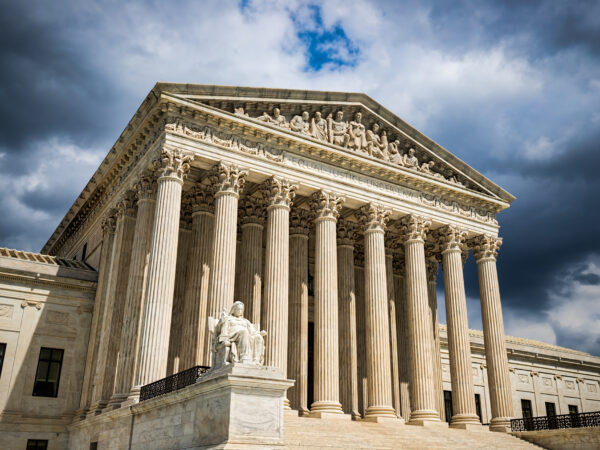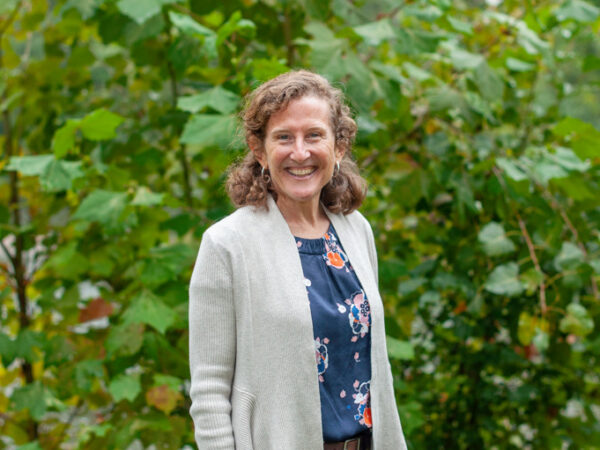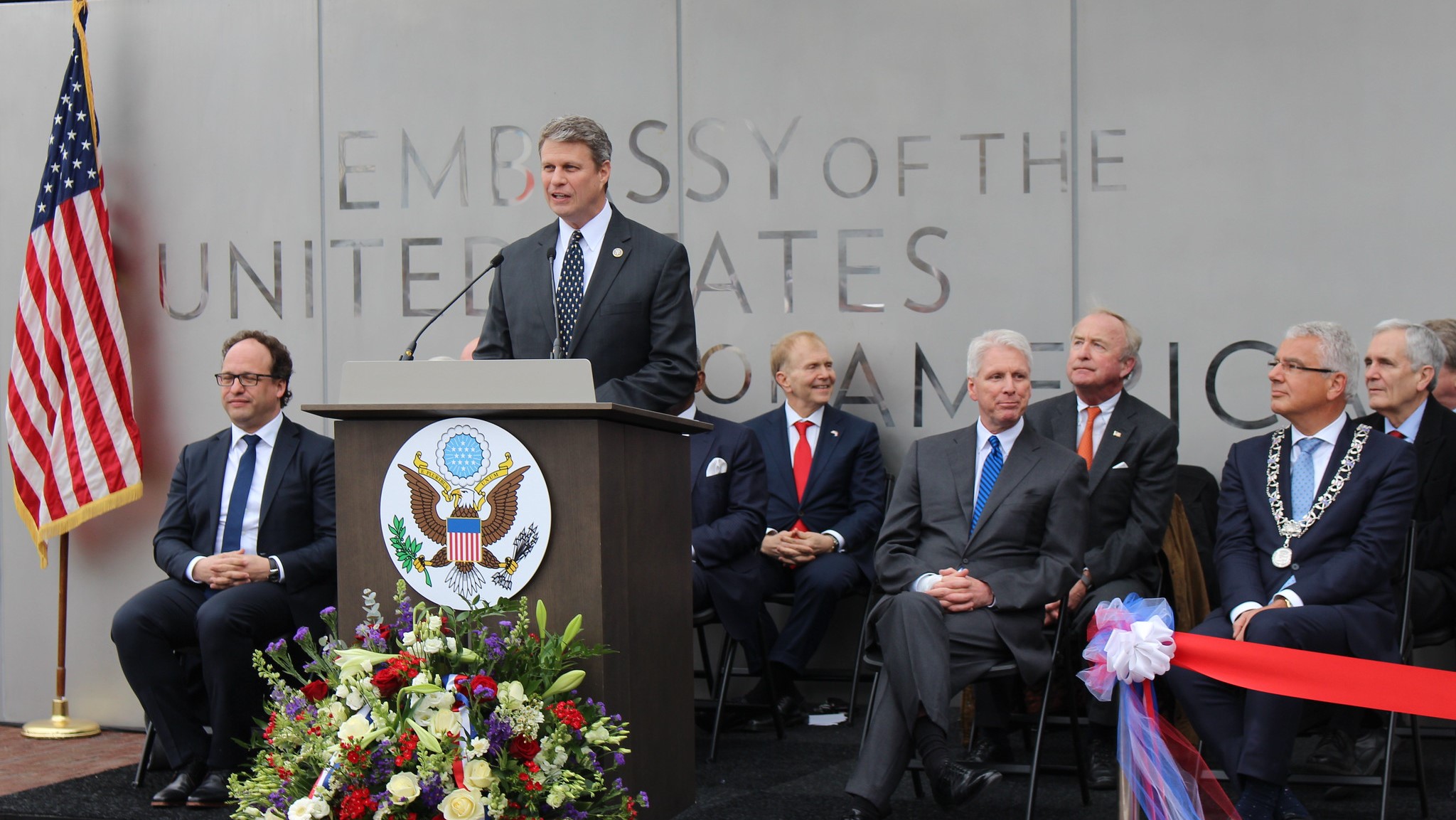
When it comes to standing up for the Great Lakes in Washington, U.S. Rep. Bill Huizenga is of two minds.
He says he works diligently to secure federal funding for Great Lakes restoration, to fight Asian carp and for an infrastructure project like a new Soo Lock or a new Coast Guard icebreaker.
That work includes educating congressional colleagues from outside the region on the virtues of the Great Lakes and the benefits they provide the country. In a time of partisan political rancor in D.C., he has successfully worked with Democrats on Great Lakes issues, and it’s paying off for Michigan, he says.
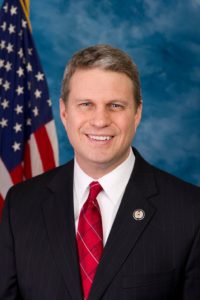
US Rep. Bill Huizenga, Photo by United States Congress cc 0.0
But even as Huizenga pushes for more funding for restoring the Great Lakes, he also supports the Trump administration’s recent rollback of the Clean Water Rule, a stance opposite to the one other Great Lakes representatives, including Ohio Democratic Rep. Marcy Kaptur, have taken.
A Republican and self-described conservative, Huizenga represents Michigan’s 2nd congressional district, which borders Lake Michigan.
As an indicator of how far he’s willing to go to advocate for the Great Lakes, Huizenga recounted how he personally lobbied President Donald Trump for more funding for the lakes while riding with him in the presidential limousine.
Trump’s first two budget proposals zeroed out the annual $300 million for Great Lakes restoration the region has received since 2010, though congress ultimately restored the funding.
Huizenga said he and other members of congress are working to increase restoration funding to $475 million.
“It’s about time Michigan got its share of federal funding,” Huizenga recently told an audience at Central Michigan University’s annual Great Lakes Symposium where he was the keynote speaker.
The price tag for the new Soo Lock, Asian Carp and a new ice breaker approaches a combined $2 billion but he doesn’t see funding fatigue for Great Lakes projects as an issue.
The projects, if approved, can be funded in smaller increments over years and, compared to the total budget, they aren’t a lot of money, according to Huizenga.
Differing views on Clean Water Rule
In his speech, Huizenga talked at length about how Great Lakes issues transcend partisan political bickering.
He illustrated the point referring to how well he works on Great Lakes issues with Rep. Kaptur, whose district includes the Lake Erie shore from Toledo to Cleveland. Kaptur is philosophically far removed from his conservative political leanings, Huizenga said.
Their close working relationship is based on “trust,” according to Huizenga.
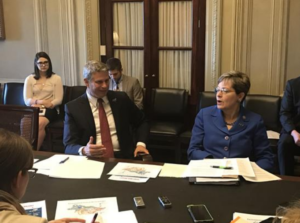
Reps. Huizenga and Kaptur met with regional Great Lakes reporters in the U.S. Capitol, Photo by huizenga.house.gov
Both Huizenga and Kaptur are in leadership positions on the Congressional Great Lakes Task Force. But there is a divide between them on the Trump administration’s rollback and replacement of President Obama’s Waters of the United States Rule, also known as the Clean Water Rule.
The rollback of the rule puts “a significant number of lakes, rivers, streams, and wetlands at increased risk for degradation and disturbance,” Central Michigan University biology graduate student Jake Dybiec, citing experts, told Huizenga during the symposium.
Central Michigan leads a region-wide coastal wetland monitoring project that is funded by the $20 million federal Great Lakes Restoration Initiative.
Huizenga’s response to Dybiec stuck to Trump administration talking points on the rule, saying it was “overreach from the federal government” and at odds with agriculture interests.
“Congressman Huizenga doesn’t believe the federal government should have regulatory control over every drainage ditch in West Michigan,” said his communications director, Brian Patrick, in a separate response to Great Lakes Now.
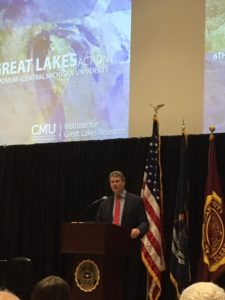
Rep. Bill Huizenga speaking at Central Michigan University’s Great Lakes Symposium, Photo by Gary Wilson
Kaptur sees the Clean Water Rule rollback differently.
“This cave to our country’s most egregious polluters will cause incomprehensible damage to our environment & public health,” she said in a social media statement.
“Dangers such as harmful algal blooms we experience in Lake Erie are likely to only worsen,” Kaptur said.
Algal blooms in Lake Erie are largely attributable to nutrient runoff from farms.
Agriculture interests lead by farm bureaus opposed the original rule calling it overreach and saying it impinged on the ability of a farm to manage its property.
The Obama version of the rule was widely supported by environmental groups who want nutrient runoff to be covered under the Clean Water Act.
“While Congressman Huizenga and Congresswoman Kaptur work to make the preservation and protection of the Great Lakes a priority, they are not going to agree with every bureaucratic mandate that comes from Washington,” Patrick said.
Lawsuits on the Clean Water Rule have been working their way through the federal court system and it is widely expected that the issue will end up in the Supreme Court.
Featured Image: Rep Bill Huizenga Co-Chair, Congressional Caucus on the Netherlands marking the official opening of the new U.S. Embassy in the Netherlands, Photo by U.S. Embassy The Hague


